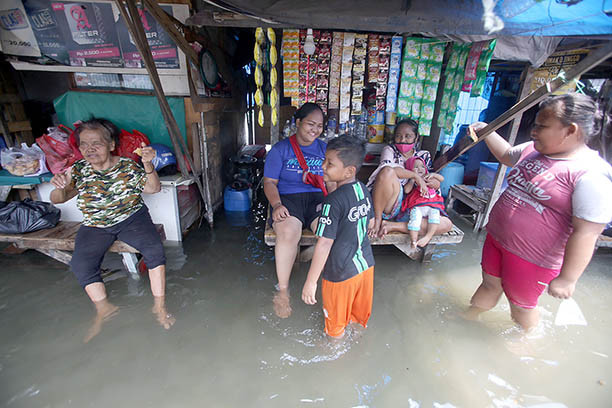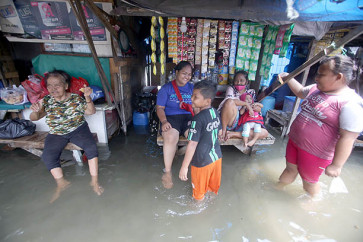Popular Reads
Top Results
Can't find what you're looking for?
View all search resultsPopular Reads
Top Results
Can't find what you're looking for?
View all search resultsCrowdsourcing of information will enhance disaster response: Observers
Last year, Indonesia recorded 9,384 disasters, including earthquakes, tsunamis, floods, land liquefaction and landslides, which left 684 people dead. This year, as of Sept. 3, the National Disaster Mitigation Agency (BNPB) had recorded 1,944 disasters killing 272 people.
Change text size
Gift Premium Articles
to Anyone
I
ndonesia has been experiencing frequent seismic activity as it sits on the Pacific Ring of Fire, an arc of volcanoes and fault lines encircling the Pacific Basin, making it one of the world’s most seismically active regions prone to tectonic and volcanic eruptions, earthquakes and tsunamis.
In addition, man-made disasters such as urban flooding persist in many regions.
Last year, Indonesia recorded 9,384 disasters, including earthquakes, tsunamis, floods, land liquefaction and landslides, which left 684 people dead. This year, as of Sept. 3, the National Disaster Mitigation Agency (BNPB) had recorded 1,944 disasters killing 272 people.
Despite having frequent disasters, emergency preparedness among the public is still deemed lacking, experts have said.
“People must realize that we are in disaster-prone areas, hence we should be aware of it, especially those living in areas where disasters do not happen frequently,” said civil engineering professor Abdul Hakam from Andalas University in Padang, West Sumatra.
The former head of Gadjah Mada University's (UGM) disaster studies center, Djati Mardiatno, said people's awareness level varied in each region, depending on the frequency of disasters. But even though they have adapted to live in disaster-prone areas, some places should be free from human settlements.
“There are some places that do not support a good quality of life, so it is no longer feasible to take mitigation measures there. But some people tend to go too far in adapting to the situation that they no longer see a disaster as a threat.”


















